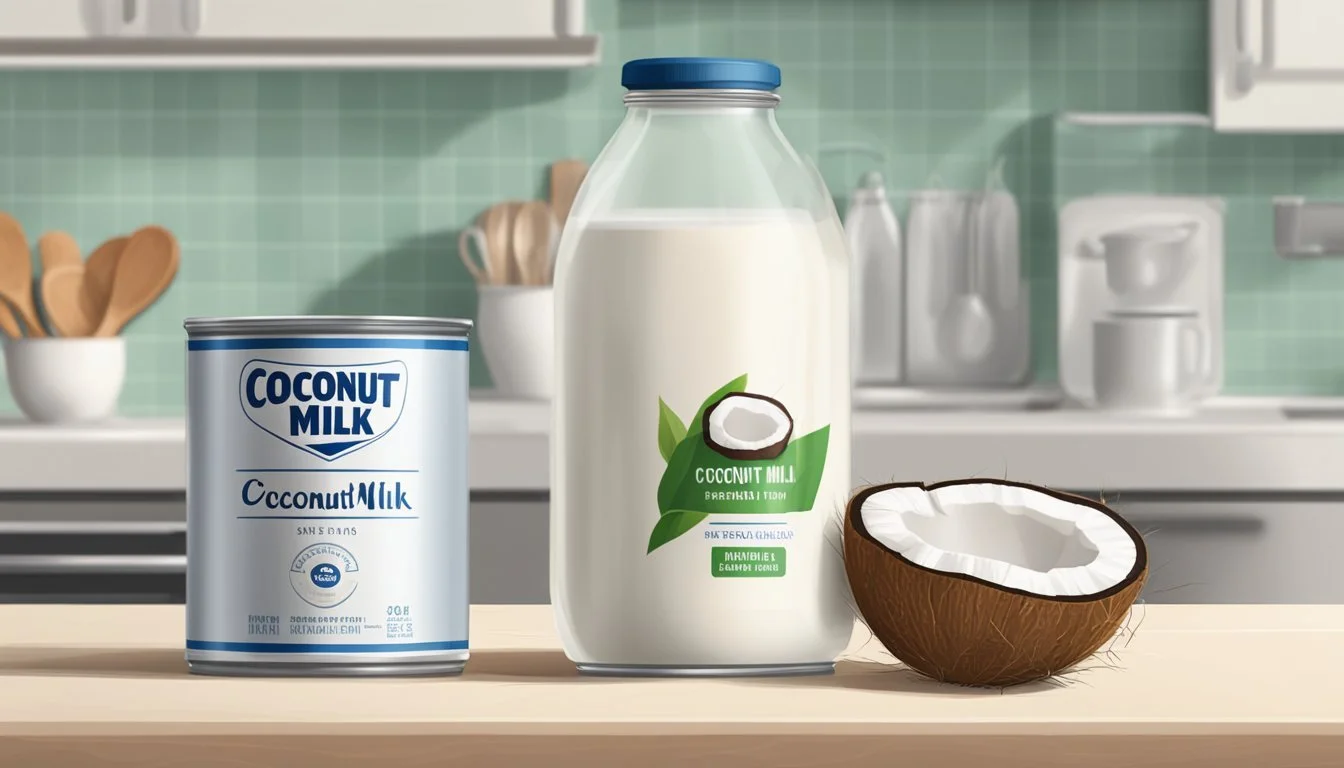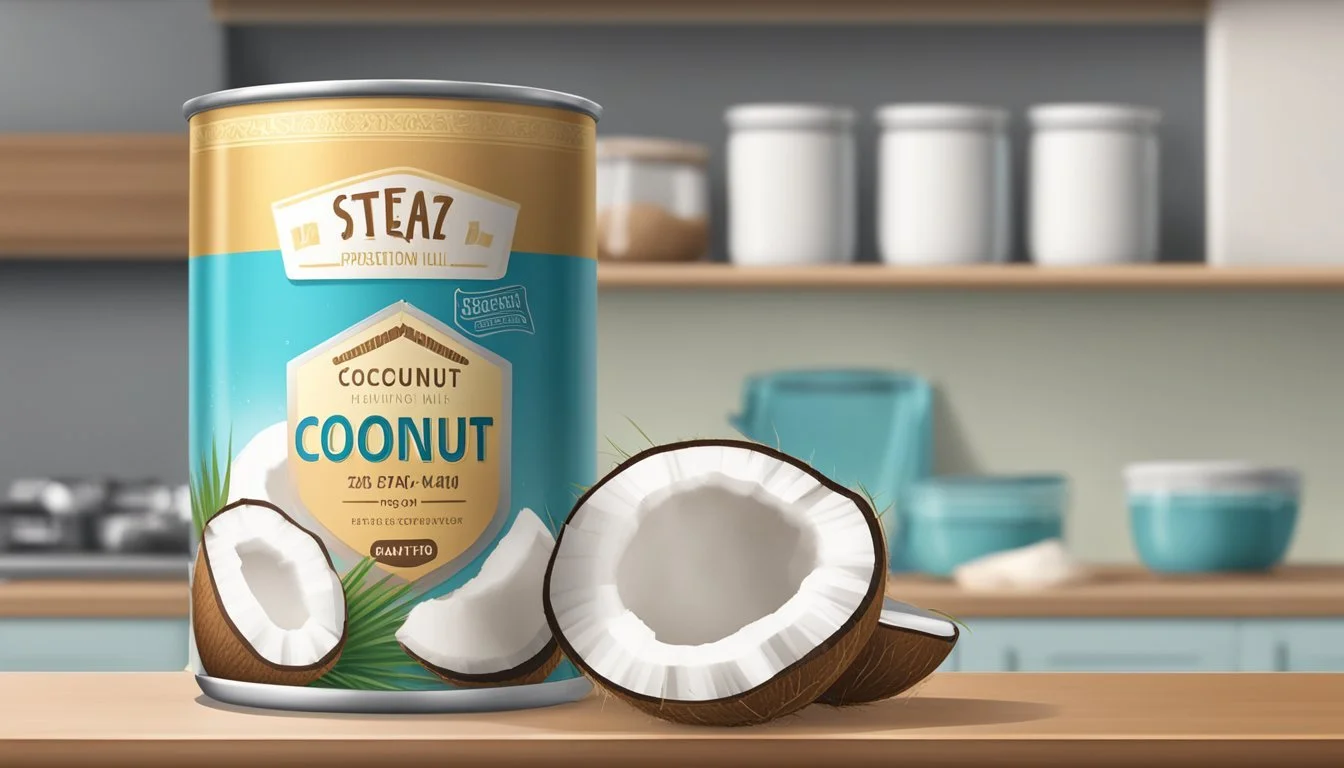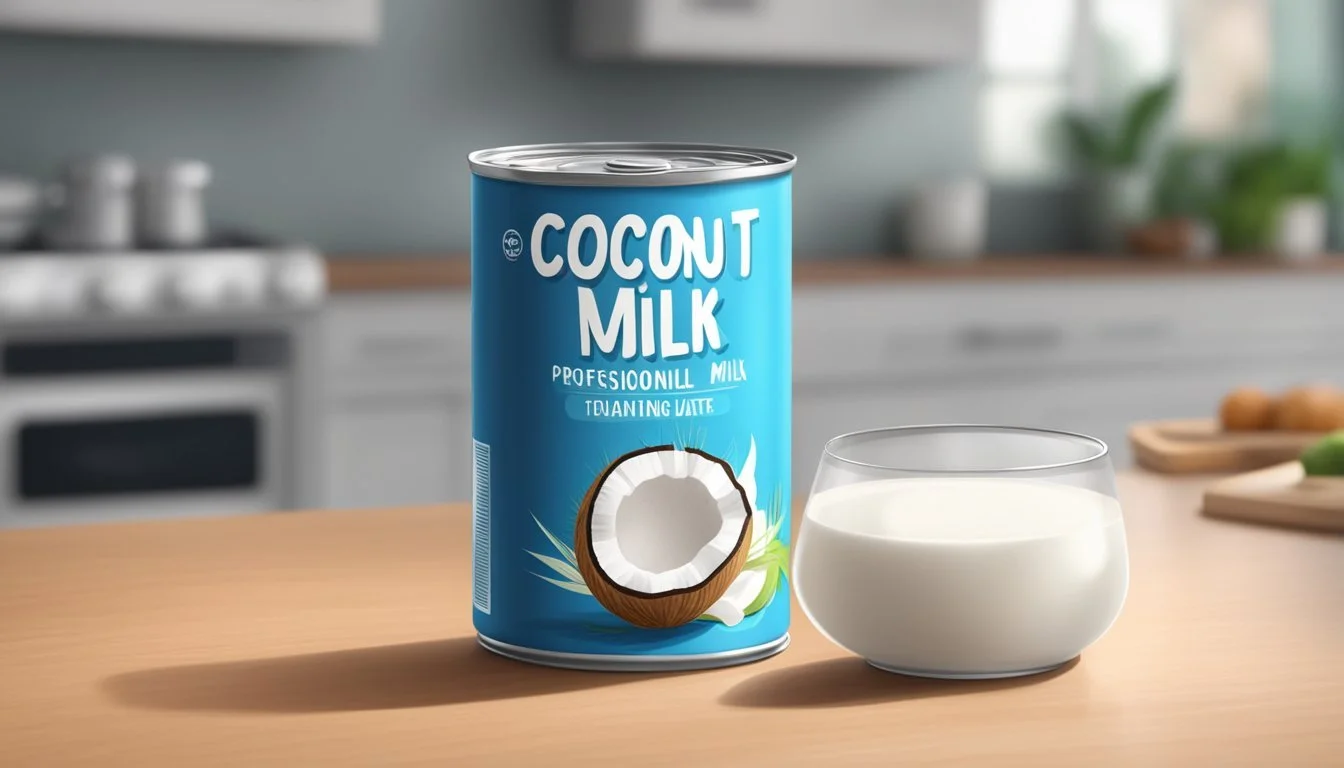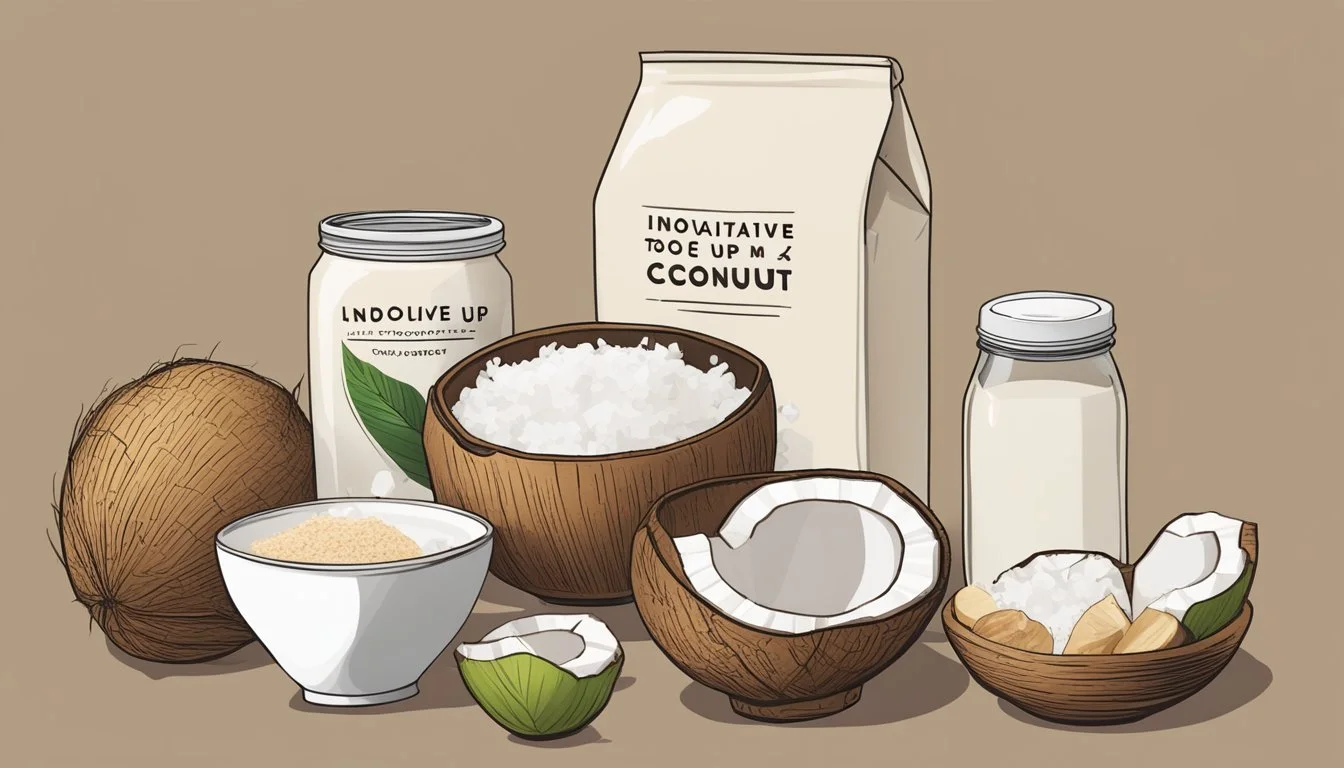Does Coconut Milk Go Bad?
Understanding Shelf Life and Spoilage Signs
Coconut milk is a staple ingredient in many kitchens, particularly those where dairy-free or exotic culinary options are in demand. It is known for its rich texture and versatility in both savory and sweet dishes. However, like most natural products, coconut milk has a limited shelf life and can spoil if not stored properly or used within a certain time frame. Recognizing the signs of spoilage is crucial to prevent foodborne illnesses and to ensure the quality of the dishes it enhances.
Unopened coconut milk can last between two to five years if stored in a cool, dry place. Once the seal is broken or the milk is transferred to other containers, its shelf life shortens drastically, generally lasting up to a week in the refrigerator. The spoilage of coconut milk is usually identifiable through several indicators, such as an off-odor, changes in texture, or a sour taste. In some cases, the packaging may also bloat or the color might change, signifying that the product is no longer suitable for consumption.
Understanding Coconut Milk
In this section, the focus is on defining coconut milk, exploring its nutritional benefits, and examining its culinary versatility. The differences between coconut milk and related products, along with its status as a dairy substitute, are also clearly articulated.
Classification and Types
Coconut milk is a liquid obtained by grating and pressing the white flesh of mature coconuts. It comes in various forms:
Canned Coconut Milk: A thick, creamy substance often used in cooking, found in most grocery stores.
Coconut Cream: A richer, thicker version of coconut milk commonly used in desserts and rich sauces.
Nut Milk: Coconut milk is sometimes grouped with this category, although unlike almond or soy milk, it is made from a drupe rather than a true nut.
These products differ from coconut water, which is the clear liquid found inside young, green coconuts.
Nutritional Profile and Health Benefits
Coconut milk contains medium-chain triglycerides (MCTs), which have been linked to health benefits like improved metabolism. A typical serving of coconut milk would contain:
Nutrient Amount per 100ml Calories 230 Fat 24g Carbohydrates 6g Fiber 2.2g Protein 2.3g Vitamin C 2.8mg
It's a staple for those following a dairy-free diet and is often favored as a dairy substitute due to its creamy texture and subtle sweetness.
Culinary Uses
Coconut milk is extremely versatile in cooking and baking. It imparts a unique flavor and richness to recipes, making it a favored ingredient in:
Curries: Adds creaminess and softens spice intensity.
Soups: Enriches the texture and taste profile of soups.
Desserts: Acts as a base for ice creams, puddings, and pastries.
As a dairy substitute, it's also used in coffee, smoothies, and various other recipes requiring a touch of creamy texture without dairy.
Shelf Life of Coconut Milk
Coconut milk's shelf life varies depending on whether the container is opened or unopened and the conditions under which it is stored. Knowing how these factors interact is key to maximizing the longevity of coconut milk.
Unopened Versus Opened Containers
Unopened canned coconut milk typically has a shelf life of two to five years when stored in a cool, dry place. In contrast, an unopened carton of coconut milk will generally last for months past the date stamped on the package if kept in a pantry.
Once the container is opened, whether canned or in a carton, the coconut milk should be transferred to an airtight container if not used immediately. An opened can of coconut milk will last between five to ten days in the refrigerator, whereas an opened carton of coconut milk might stay fresh for a similar duration—though exact times can vary by brand recommendations.
Factors Affecting Shelf Life
Storage Conditions: Temperature plays a critical role, as coconut milk should be stored away from direct sunlight and heat sources.
Packaging: Airtight and sealed containers will preserve coconut milk's freshness for longer. Once opened, coconut milk should be stored in the refrigerator to limit bacteria growth.
Preservatives: Some brands may contain preservatives that extend shelf life, so consumers should read labels carefully.
Expiration Dates and Best-by Dates
Every carton or can of coconut milk comes with an expiration date or best-by date which consumers should observe for optimal quality and safety. However, these dates indicate quality rather than safety; coconut milk may remain safe to consume slightly past this date as long as there are no signs of spoilage. Here is a simple guideline:
Type Pantry Refrigerator Unopened canned coconut milk 2-5 years Not applicable Unopened carton coconut milk Months past date Not applicable Opened can/carton coconut milk Not applicable 5-10 days
Consumers are encouraged to check for spoilage signs such as sour odor or changes in texture before use.
Proper Storage Techniques
Proper storage of coconut milk is crucial to maintain its freshness and prevent spoilage. Storing coconut milk correctly can significantly extend its shelf life, whether it's in a carton, homemade, or canned.
Room Temperature Storage
Unopened coconut milk can be stored at room temperature, such as in a pantry or another cool, dark place. It is important that the area is away from direct sunlight and not prone to significant temperature changes. Once opened, coconut milk should not be left out, as this significantly increases the risk of spoilage.
Refrigeration Best Practices
After opening, coconut milk should be transferred to an airtight container if it is not already in one. Place it in the refrigerator, ideally at or below 40°F (4°C). Refrigerated coconut milk generally stays fresh for up to five days. It's important to seal the container properly to prevent the milk from absorbing other flavors and odors from the refrigerator.
Freezing for Extended Use
For long-term storage, freezing coconut milk is an effective method. Freeze in ice cube trays for small, convenient portions, or in an airtight container for larger amounts. Thaw frozen coconut milk in the refrigerator before use. Note that freezing may cause slight changes to texture, but it's still suitable for cooking and baking.
Identifying Spoilage
To ensure the safety and quality of coconut milk, it is crucial to recognize the signs of spoilage. Identifying expired coconut milk involves careful examination of visual cues, smell and taste, as well as texture and consistency.
Visual Inspection
One can determine if coconut milk has gone bad by visually inspecting the color and appearance for any abnormalities. Fresh coconut milk should have a uniform, creamy white color. Signs of spoilage include:
Discoloration: Any presence of dark spots or a yellowish hue indicates spoilage.
Mold: Visible mold growth, particularly on the surface or the rim of the container, necessitates immediate disposal of the product.
Smell and Taste Test
The olfactory and gustatory senses are reliable indicators of spoiled coconut milk. Spoiled coconut milk often develops an:
Off Smell: A sour or unpleasant odor is a clear sign that coconut milk should not be consumed.
Taste: If there is any doubt after the smell test, a tiny sip can confirm spoilage. Spoiled coconut milk has a distinct sour taste.
Texture and Consistency
The texture and consistency of coconut milk can also signal whether it has gone bad. Look for:
Separation: While some separation is normal, excessive separation where the components do not combine well upon stirring may be a sign of spoilage.
Chunkiness: Coconut milk should be smooth. A gritty or chunky texture is a warning sign.
Safety and Food Poisoning Concerns
When it comes to coconut milk, a dairy-free and vegan-friendly alternative to animal milk, safe consumption is crucial. Improper storage or keeping the milk beyond its expiration can lead to spoilage, creating a risk for food poisoning caused by bacteria.
Risks of Consuming Spoiled Coconut Milk
Spoiled coconut milk can host a variety of bacteria such as Salmonella and E. coli, which are common culprits of foodborne illnesses. Symptoms associated with food poisoning may include:
Nausea
Vomiting
Diarrhea
Abdominal pain
Individuals consuming tainted coconut milk may experience these symptoms and should seek medical attention if they occur.
Prevention Tips
To prevent spoilage and the risks of food poisoning, follow these storage tips:
Refrigerate Promptly: Store coconut milk in the refrigerator immediately after opening.
Seal Properly: Use airtight containers to avoid contamination.
Monitor Shelf Life: Observe the expiration date and discard any coconut milk that's past its prime.
Hygiene is Key: Always use clean utensils to prevent the introduction of bacteria.
By adhering to these strategies, consumers can reduce the likelihood of spoilage and enjoy coconut milk safely.
Innovative Ways to Use Up Coconut Milk
Unused coconut milk offers a plethora of opportunities, from enhancing recipes beyond traditional cooking to discovering its utility in beauty and personal care. Its versatility makes it a valuable ingredient in both the kitchen and around the house.
Recipes Beyond Cooking
One can utilize coconut milk in various innovative ways to add a luxurious touch to their daily routine. Transform smoothies by freezing coconut milk in ice cube trays and blending them with fruits for a creamy texture. Coconut milk also blends well with coconut oil and coconut cream to enrich coffee or tea, providing a dairy-free alternative with a tropical flair. For those with a sweet tooth, using coconut milk in desserts can be a delightful experience. It offers a rich, creamy base in recipes such as fudges, panna cotta, or even when crafting homemade ice cream.
Smoothies: Freeze coconut milk in ice cube trays and use in place of water for richer flavor.
Coffee and Tea: Add coconut milk instead of milk for a dairy-free latte.
Desserts: Enhance the creaminess in desserts like chocolate mousse or cheesecakes.
Beauty and Household Uses
Coconut milk can also find its place outside the realm of culinary endeavors. Its moisturizing properties allow it to serve as a base in homemade face masks or hair conditioners, offering hydration and a healthy glow. Additionally, coconut milk can be used in making natural deodorants or even as a delicate fabric softener due to its gentle fatty acid content. When one's creativity merges with the multifaceted uses of coconut milk, the possibilities can be both resourceful and environmentally friendly.
Hair Conditioner: Apply coconut milk to hair as a deep conditioning treatment.
Skin Care: Use coconut milk in homemade face masks for added moisture.
Household Utility: Incorporate into homemade fabric softeners or natural deodorants.
Frequently Asked Questions
In this section, the reader will find clear and concisely structured information addressing common inquiries regarding coconut milk's shelf life, optimal storage practices, and suitable alternatives when the need arises.
Extended Shelf Life Queries
Coconut milk’s longevity varies depending on whether it is in a can, a carton, or made fresh from coconut meat. Canned coconut milk, once opened, should be transferred to a glass or plastic container if not used immediately. It can last up to 7-10 days in the refrigerator. Unopened cans have a longer shelf life and can last several months past the printed expiration date when stored in a cool, dry place. For cartons with aseptic packaging, which are shelf-stable until opened, the same 7-10 day rule typically applies once they are opened and refrigerated.
Unopened Can/Carton: Several months past expiration date if in a cool, dry place
Opened Can/Carton: 7-10 days in refrigerator
Storage Options Deep Dive
The best storage method for coconut milk is to keep it in a refrigerator after opening to slow down the degradation process. A sealed container is essential to prevent it from absorbing other flavors and smells. For extended storage, coconut milk can be frozen, with ice cube trays being a convenient method for later use. It's crucial to note that coconut milk will separate upon thawing and should be shaken well before use. One should also avoid high humidity areas for storing unopened cans or cartons as it promotes mold growth.
Refrigeration: Necessary for opened coconut milk
Freezing: Possible in ice cube trays; expect separation
Culinary Substitutions and Alternatives
In recipes where coconut milk is a key ingredient, finding an appropriate substitute can be challenging due to its distinct flavor and texture. Unsweetened almond or soy milk can serve as an alternative, though they lack the creamy thickness of coconut milk. Adding a thickening agent like guar gum may help. In Southeast Asian cuisine, where coconut milk is prevalent, the substitutes may not provide the same authenticity. One might consider using coconut milk powder or cream for a similar flavor profile.
Unsweetened Almond/Soy Milk: Possible substitute with less body
Coconut Milk Powder/Cream: Closer in flavor, adjust consistency







